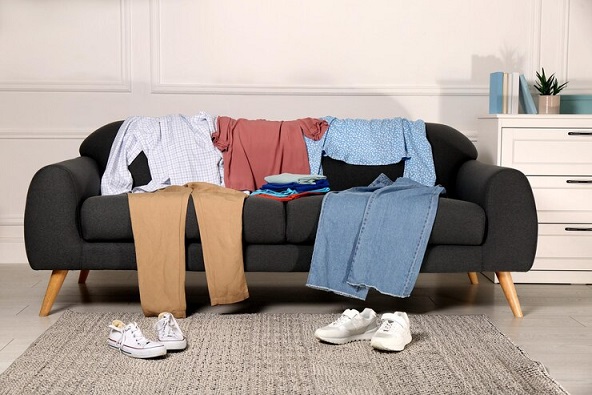When confronted with an exhausted or harmed couch, mortgage holders frequently end up at an intersection: fix the current sofa then again placed assets into another. The two decisions have their potential gains and disadvantages, and understanding them can help in making a good choice.
Assessment of Sofa Damage
Prior to choosing fixing or purchasing new, survey the degree of harm to your couch. Minor issues like free sewing or a noisy spring can be effectively fixed, while huge primary harm could warrant a substitution.
Cost Consideration
Fixing a couch is normally more practical than buying another one. Basic fixes, for example, reupholstering or supplanting pads can be somewhat modest, though purchasing a shiny new couch can be a huge monetary venture.
Time and Effort
Fixing a couch frequently calls for less investment and exertion contrasted with looking for another one. With fixes, you can have your couch back in usable condition inside a brief period, though choosing and hanging tight for conveyance of another couch can require weeks.
Customization Options
Fixing your couch considers customization choices that may not be accessible with another buy. You can pick the texture, variety, and even make adjustments to the plan to all the more likely suit your inclinations and existing stylistic layout.
Environmental Impact
Picking to fix your couch lines up with maintainability objectives by diminishing waste and broadening the life expectancy of furniture. Purchasing new furniture adds to ecological strain through asset extraction, assembling, and transportation.
Quality and Durability
New couches frequently accompany guarantees and ensures, guaranteeing quality and solidness. Fixing a more established couch may just resolve recent concerns, without any assurance of future execution, particularly assuming the couch is approaching the finish of its life expectancy.
Aesthetic Appeal
Buying another couch permits you to refresh the stylish of your living space, offering a new look and possibly upgrading the general climate. Fixing a couch might keep up with its current style, which could be attractive on the off chance that it supplements your stylistic layout.
Functional Needs
Consider your practical necessities while settling on fix and substitution. In the event that your ongoing couch meets your necessities with regards to estimate, solace, and usefulness, fixing it could be the most commonsense decision.
Emotional Attachment
Profound connection to your couch can impact your choice. On the off chance that your couch holds nostalgic worth or has been a piece of your home for quite a long time, fixing it very well might be desirable over purchasing another one, which misses the mark on same wistful importance.
Long-Term Investment
When weighing the options, consider the long-term investment value. While repairing a sofa may appear to be financially savvy at first, putting resources into a top notch new couch could offer better life span and worth over the long haul.
Conclusion
Eventually, the choice to fix or purchase another couch relies upon different variables including the degree of harm, cost contemplations, time imperatives, individual inclinations, and maintainability objectives. Surveying these variables cautiously can assist you with pursuing the best decision for your home and way of life. Whether you select fix or substitution, the objective is to guarantee that your seating stays agreeable, useful, and stylishly satisfying into the indefinite future.
